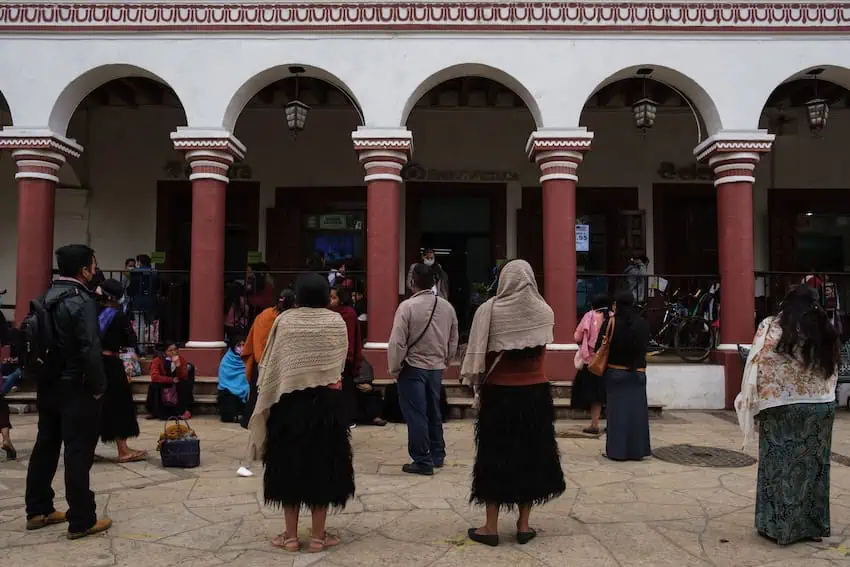It costs a lot of money to not have a lot of money.
In fact, I’d say one of the ways that the rich stay rich is by charging everyone else as much as they possibly can while paying as little as they can. One way this can happen is through interest on credit, often needed these days even for the bare essentials. It also happens through late fees, payday loans and cash checking centers. In the United States, even the cap on social security taxes allows the rich to simply stop paying it after their income reaches a certain point. Plenty of other US tax policies allow wealth to stay concentrated, too.

Take me. Now, I don’t consider myself poor — not in Mexico, anyway. But around this time last year, I lost my “main” job. Odd jobs — and writing for this publication — kept me afloat somewhat with the essentials that had to be paid in cash. But for everything else, I used my credit cards. Luckily, I have US cards and pretty good credit, so especially compared to Mexico, interest rates I paid and still pay were and are fairly low.
Still, it’s been rough, and I’m in a hole that’s going to take me a while to dig myself out of. My cards are getting dangerously close to being maxed out. And though I make at least the minimum payments faithfully every month and have never missed a payment, my previously “excellent” credit is now simply “average.”
Add to that “processing fees” from services like Paypal and Stripe — employers often determine how one can get paid — and you’ve got a smaller chunk of change already, even before paying self-employment taxes. Nickled and dimed, indeed.
Luckily, I have what I think and hope will be a steady job for the foreseeable future, with better pay that I’m used to. Even so, it’s going to take sucking in my gut for the rest of the year to get out from under this mountain of debt, and a not-insignificant portion of my payments now are simply interest charges.
All this is to say that I know from very personal experience what a difference a five percent tax on remittances, like the kind proposed by the Trump administration in the U.S., could make on working people just trying to send money home. With prices ever-increasing and all our economic futures uncertain, every dollar or peso truly does count.
This is a situation that many people find themselves in all over the world. Salaries and wages have not kept up with inflation or the cost of living on either side of the border. Mexico is at least working on raising the minimum wage. But in the States, there are, sadly, many accounts of people working full-time jobs and living in their cars or in shelters. It’s just really hard to keep up for lots and lots of people.

Many of those hard-working people up north are immigrants. Many keep for themselves the bare minimum for survival, preferring to send the rest to family back home. Relatives back home, meanwhile, count on that money to get by; often, entire families do. And though not all workers have legal status, they do pay US taxes.
The proposed tax on remittances is deeply unfair, but it is also deeply unsurprising. After all, the overall policy of the new presidential administration seems to be a sort of reverse Robin Hood: take from the poor to give to the rich. As they work at figuring out how to pay for a gigantic tax break for the wealthy, they’re cutting off money for everyone else wherever they can. Essential social services are dwindling, even when they weren’t all that strong to begin with. Even people who thought they were safe are feeling this wealth transfer.
Programs that provided not only services but jobs are disappearing, no matter what contracts say. Major services are being decimated, stable jobs replaced with an overworked few, plus AI. My father is terrified he’ll stop getting his social security. Hopefully that won’t happen. But if a problem arises, who will be staffing the offices that might be able to help him?
Cutting services isn’t the only way the Trump administration is looking to pay for this tax cut, though. The world has been watching in horror as he’s levied nonsensical tariffs on allies and enemies alike, ignoring all previous agreements.
There’s a new Baby Godzilla in town, and the tantrum is in full swing.
We know that Trump considers tariffs a “great deal” for the U.S. But even more money is needed to fund that tax cut, and we are definitely not asking Jeff Bezos or Elon Musk to pay it.
So who can we charge beyond all the people we’re already charging? One of the political right’s favorite boogeymen, of course: the immigrant.
Because it’s not enough that they’re already living in even more precarious situations than citizen workers are, especially with ICE now running around like the Gestapo. They need to be punished for having dared to enter the country in the first place. This goes for legal immigrants, too. “Everything you get to do here is a privilege, not a right,” the message seems to be.
In a perfect world, remittances would not be necessary. Everyone would be able to make the amount of money they need for them and their families to survive and thrive wherever they wished to live.
But that is not our world, and many families’ survival depend on that money sent back home. Let’s at least not pile on the cruelty.
Sarah DeVries is a writer and translator based in Xalapa, Veracruz. She can be reached through her website, sarahedevries.substack.com.
